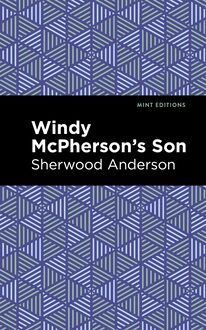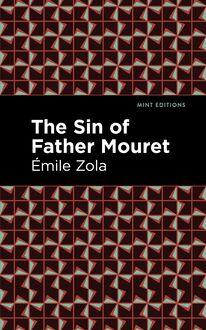-
 Univers
Univers
-
 Ebooks
Ebooks
-
 Livres audio
Livres audio
-
 Presse
Presse
-
 Podcasts
Podcasts
-
 BD
BD
-
 Documents
Documents
-
- Cours
- Révisions
- Ressources pédagogiques
- Sciences de l’éducation
- Manuels scolaires
- Langues
- Travaux de classe
- Annales de BEP
- Etudes supérieures
- Maternelle et primaire
- Fiches de lecture
- Orientation scolaire
- Méthodologie
- Corrigés de devoir
- Annales d’examens et concours
- Annales du bac
- Annales du brevet
- Rapports de stage
La lecture à portée de main
Vous pourrez modifier la taille du texte de cet ouvrage
Découvre YouScribe en t'inscrivant gratuitement
Je m'inscrisDécouvre YouScribe en t'inscrivant gratuitement
Je m'inscrisEn savoir plus
Vous pourrez modifier la taille du texte de cet ouvrage
En savoir plus

Description
After the death of their patriarch, and a devastating fever that killed all but two of the children, the surviving Reece family, Mrs. Reece, Wolfgang, and Oscar, are left with just the vast property their family had owned for generations. Despite their poor financial situation, the family happily agreed to take in Judith Wynne, the nineteen-year-old daughter of a colonel. Because of his career, her father left Judith in the care of her aunt and uncle, though he was reluctant to do so because of their differing religious beliefs. After the death of her aunt, the colonel did not want Judith to stay with her uncle, so he requested the help of his old friend, Mrs. Reece. The Reece’s were happy to accommodate. Though it is a big adjustment for everyone involved, Judith slowly integrates herself into the family’s routine. She gets along well with Mrs. Reece, and becomes close with the younger son, Oscar. As Judith and Oscar grow to be good friends, Wolfgang, the oldest brother and head of the house, sees a new opportunity. Knowing that Judith will soon inherit a good amount of money, Wolfgang tries to subtly set Oscar and Judith up to be married. When Oscar goes away for school, Wolfgang uses the opportunity to advocate his brother, despite the fact that Oscar did not consent to it. However, as Wolfgang spends more time with Judith, he begins to realize how futile his efforts are, especially as his own conflicting feelings for Judith grow. Separated into three volumes, Catherine Louisa Pirkis’ Judith Wynne is a masterful slow-burn romance that explores themes of family, class, and pride. First published in 1884, Judith Wynne continues to capture the hearts of modern readers with its memorable characters, descriptive language, and moving love story. This edition of Judith Wynne by Catherine Louisa Pirkis features a new, eye-catching cover design and is printed in an easy-to-read font. With these accommodations, Judith Wynne caters to a modern audience while preserving the original beauty of Catherine Louisa Pirkis’ work.
Sujets
Informations
| Publié par | Mint Editions |
| Date de parution | 21 juin 2021 |
| Nombre de lectures | 0 |
| EAN13 | 9781513277004 |
| Langue | English |
| Poids de l'ouvrage | 2 Mo |
Informations légales : prix de location à la page 0,0500€. Cette information est donnée uniquement à titre indicatif conformément à la législation en vigueur.
Extrait
Judith Wynne
Catherine Louisa Pirkis
Judith Wynne was first published in 1884.
This edition published by Mint Editions 2021.
ISBN 9781513272009 | E-ISBN 9781513277004
Published by Mint Editions ®
minteditionbooks.com
Publishing Director: Jennifer Newens
Design & Production: Rachel Lopez Metzger
Project Manager: Micaela Clark
Typesetting: Westchester Publishing Services
To
N ORAH M ARGUERITE C HANDOS C ECIL
This Book
Is Dedicated.
N UTFIELD , 1884
C ONTENTS V OLUME I I II III IV V VI VII VIII IX X XI XII XIII XIV XV XVI XVII XVIII XIX XX V OLUME II I II III IV V VI VII VIII IX X XI XII XIII XIV XV XVI XVII XVIII XIX XX V OLUME III I II III IV V VI VII VIII IX X XI XII XIII XIV XV XVI XVII XVIII XIX XX XXI XXII
VOLUME I
I
It lay in a deep, shadowy hollow, a forlorn, God-forgotten house to look at. Like the Grange of poetic legend, it was surrounded by a moat, but it could not be said of it, as of the ill-fated Mariana’s abode, that around “for leagues no tree did mark the waste,” for it was backed by a dark, thick wood of most ancient growth. Plas-y-coed the old house was called by the people in the district; The Grange was the name by which it was as a rule distinguished by the Reeces, in whose family, with its acres of park and arable land, it had been for generations, passing in steady, unbroken line from heirs male to heirs male.
Beyond the background of dark wood rose the blue mountains of Llanniswth, peak over peak in all their sharp, lonely grandeur. Down their rough, cleft sides rushed ceaselessly the cataracts, which fertilised the deep-growing trees of the ancient wood. The air was always humid, a grey mist seemed ever hanging about. The lichen on the old walls, the marish mosses which fringed the paths, had reached an almost tropical luxuriance; the stone-paved terrace was absolutely slippery with the minute vegetation which grew in every crevice between the flags.
“I say, old fellow,” cried Oscar Reece, coming down the five steps which led from the house with a spring and a bound, “you should turn in an army of gardeners here; our lives are not safe, a coroner’s inquest will be the end of it—that’s a fact.”
Wolfgang Reece, standing on the terrace with a sealed letter in his hand, paid no heed to the speaker. He was elder brother by about a dozen years to Oscar, and is the present master of The Grange.
“Where is my mother?” he asked, and getting Oscar’s reply, “In the breakfast-room,” he opened a little door leading off the terrace and went into the house.
Within, the house was as desolate as it was without. It abounded in long, winding passages, and small, low-ceiled rooms. The breakfast-room, with the morning sun upon it, was possibly the cheeriest and best lighted of these. When Wolfgang turned the handle and went in, it seemed full of the chequered sunlight which fell through the beech-trees growing close—too close for health one would think—to the casemented window. An elderly lady was seated in a huge armchair with knitting-needles in her hand; a big, brown mastiff lay at her feet, and formed her footstool. Her head was large and well-set, her features good, but too massive to suit conventional ideas of female beauty. Her hair was white as snow, her complexion clear and pale. The least exact of observers might have identified these two as mother and son. Wolfgang had the same large, well-set head, and regular, massive features. Her hair must have been fair as his in her early youth, her eyes possibly as deep a grey, and as clear and bright as his, though now, alas! dim and glazed with premature disease which was slowly but surely ending in total blindness.
When they spoke their voices had the same clear, strong vibration.
“Here is a letter, mother,” he said, “with an Indian stamp on it. Shall I read it to you?”
“An Indian stamp!” she repeated. “I only know of one person in India likely to write to me—Colonel Wynne, my mother’s third cousin. But it’s seven or eight years at least since we last corresponded. Yes, read it, Wolf.”
It was from Colonel Wynne. The first page of the letter was given up to congratulations.
“I heard quite by chance,” he wrote, “of Wolf coming into the Welsh property. From the bottom of my heart I congratulate you all. It was an odd thing poor Bernard Reece dying so suddenly. Only twenty-seven, wasn’t he? That trip to Bermuda was a wild thing for a man to undertake without any rhyme or reason. However, it has brought good fortune to you and yours, so we won’t moan over it. Now I am writing to ask a special favour of you, Elizabeth. Will you take my little girl, Judith, under your wing, for the next two years? As you know, she has been brought up in France with her mother’s people. When my M é lanie died, Judith went to live with her aunt and uncle at St. Andr é . That was ten years ago, and I have not seen her since. Well, the aunt was a strict Presbyterian, the uncle a Catholic priest, an odd commingling of influence to place a child under, was it not? All I begged of them was not to interfere with her religious opinions. I don’t think they have, for she writes to me that she has never failed in her attendance at a Protestant place of worship. The aunt has just died, and as I do not like the idea of her staying on with the priest, I shall be very grateful to you if you will take her into your home, give her an insight, as it were, into an English household, till I can return to England and make one for her. In two years’ time I hope to be able to do this, but not before. I know of no one in England but yourself of whom I could ask this favour.”
Oscar had come into the room during the reading of this letter. He now burst forth exuberantly:
“A girl coming to stay with us? How awfully jolly! Mother, of course you’ll say yes. It would be downright cruel to refuse to take her in. I hope she’ll be a good specimen. Of course, Wolf, you’ll have the old place made habitable now?”
Mrs. Reece laid down her knitting.
“Let me see, Oscar,” she said meditatively: “Judith Wynne is just nineteen, you are just twenty. Ah, you will be safe enough. Nothing under five-and-twenty would suit you at the present moment. Wolf is in the greater danger, he is turned thirty-one, but still thirty-one is an age at which a man ought to be able to take care of himself.”
“Yes, if he is ever going to,” said Wolf, laying down the letter and walking towards the door.
“I say,” shouted Oscar after him, “you’ll see about the repairs at once, won’t you?”
But to this Wolf made no reply.
II
From whatever cause it might arise, the fact remained that no sound of workman’s hammer nor gardener’s hoe broke the silence which, like the mountain mist, seemed perpetually to overhang the old Grange.
Judith Wynne, as she drove up the weedy road leading to the old house, thought in all her life she had never set eyes upon a more hopelessly desolate and forlorn-looking habitation.
The neat, pretty French home she had just quitted was still photographed vividly on her brain. She shut her eyes, and once more it rose up before her as on the morning when she had looked her last good-bye to it—a square, white-fronted villa, in the streaming June sunlight, long-windowed, with pretty green veranda which ran the length of its frontage, and was broken here and there by the big orange-trees in tubs, and pink-flowered oleanders. A house, in fact, giving every outward sign of neat housewifery and careful keeping. She opened her eyes, and, lo! there stood before her a long, low, damp-looking building, grey with the lichen that hung about its eaves, green in patches with the smaller-growing mosses, its wood-work bronzed and blistered, its windows uncurtained, its frontage unswept. The contrast between the two homes—the one which her memory held and the one which faced her—was keen. It set her shuddering, and it set her thinking.
W OLF AND O SCAR HAD MET her at Pen-Cwellyn, the little station seven miles from The Grange, and had driven her home. It was a long drive. The June sun was at its highest, and Wolf had apologised for the open carriage he had brought for her.
“We have no other,” he had said simply. Oscar’s fair, boyish face had flushed crimson as he spoke.
Judith, looking from one to the other, thought she had never seen two brothers more unlike in form and feature.
“He will be handsome in ten years’ time,” she had said to herself, taking stock of Oscar’s bronzed hair, blue eyes, and fine, though slight figure. “And he will be an old man in ten years’ time,” she had thought as her eye rested on Wolf’s stooping shoulders, the grey that showed here and there on his brown hair and beard, the deep, knotted frown which drew his brows together and made his dark eyes seem sunken and dim.
Oscar kept cheerful talk going as they drove along the flinty road. It necessarily had to be talk on general topics, for they were strangers, one to the other, in all but name. Judith knew but little of these distant cousins of hers. She had heard some seven or eight years previously of the death of their father, a hard-working East of London clergyman, who had taken typhus-fever from one of his poor parishioners, and had died at his post. She had heard that his mantle had fallen on his son Wolfgang, and that he had worked as hard as a curate as his father had as a rector. Whispers had also reached her, though she scarcely knew how true they were, of hardship and poverty which the widow had been called upon to endure; of the death by fever of all her children, save the eldest and youngest; of the gradual, though certain loss of her own eyesight. All this Judith had heard in a far-off roundabout sort of way from time to time, and she had listened to it much as she would have listened to anyone telling her of changes in the government of Australia or Japan, a sort of something altogether outside her little circle of living interests. Then, quite unexpectedly, there had co
-
 Univers
Univers
-
 Ebooks
Ebooks
-
 Livres audio
Livres audio
-
 Presse
Presse
-
 Podcasts
Podcasts
-
 BD
BD
-
 Documents
Documents
-
Jeunesse
-
Littérature
-
Ressources professionnelles
-
Santé et bien-être
-
Savoirs
-
Education
-
Loisirs et hobbies
-
Art, musique et cinéma
-
Actualité et débat de société
-
Jeunesse
-
Littérature
-
Ressources professionnelles
-
Santé et bien-être
-
Savoirs
-
Education
-
Loisirs et hobbies
-
Art, musique et cinéma
-
Actualité et débat de société
-
Actualités
-
Lifestyle
-
Presse jeunesse
-
Presse professionnelle
-
Pratique
-
Presse sportive
-
Presse internationale
-
Culture & Médias
-
Action et Aventures
-
Science-fiction et Fantasy
-
Société
-
Jeunesse
-
Littérature
-
Ressources professionnelles
-
Santé et bien-être
-
Savoirs
-
Education
-
Loisirs et hobbies
-
Art, musique et cinéma
-
Actualité et débat de société
- Cours
- Révisions
- Ressources pédagogiques
- Sciences de l’éducation
- Manuels scolaires
- Langues
- Travaux de classe
- Annales de BEP
- Etudes supérieures
- Maternelle et primaire
- Fiches de lecture
- Orientation scolaire
- Méthodologie
- Corrigés de devoir
- Annales d’examens et concours
- Annales du bac
- Annales du brevet
- Rapports de stage
















